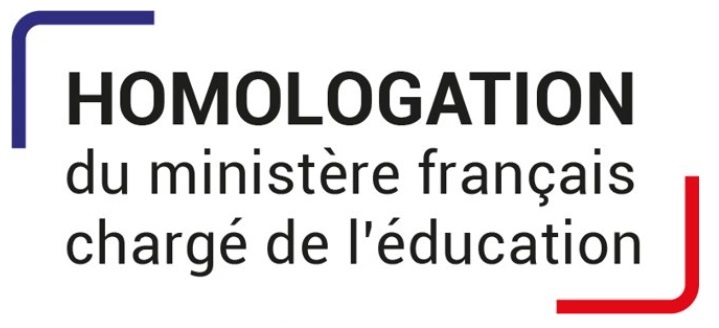At the French American School of Silicon Valley (FASSV), we believe a truly world‑class education pairs intellectual rigor with humanity, resilience, and purpose. Our students learn to think critically, act ethically, and communicate with confidence in two languages and across cultures. From Preschool through Grade 5, children grow into curious, capable thinkers and compassionate leaders prepared to thrive in an interconnected world.
Academic Excellence and Intellectual Depth
Our bilingual curriculum combines the French Ministry of Education program with the California Common Core Standards, offering students the best of both systems. This integration ensures strong foundations in reading, writing, mathematics, science, and the humanities, all while building sophisticated multilingual fluency. Daily instruction in both French and English allows children to engage deeply with ideas, analyze from multiple perspectives, and express themselves clearly in two structured, rich linguistic systems.
Early literacy is intentionally built through Heggerty and UFLI phonemic and phonics instruction in English and immersive language phonics and phonemic awareness in French. As students grow, advanced reading and writing programs, such as Fishtank Learning in English and French literature guidance per the French Ministry of Education, guide our teachers and students through literature analysis, structured writing, and vocabulary development. Students don’t just learn two languages; they learn how to think in two languages.

Mathematics in Two Languages
Our mathematics program challenges students’ minds through reasoning, logic, and creativity, taught entirely in both French and English. Using i‑Ready in English and the rigorous mathematics curriculum of the French Ministry of Education, students master computation, data, geometry, and algebraic reasoning across linguistic contexts. They learn to approach complex problems flexibly, seeing patterns and relationships from multiple angles. Students participate in both the French National Evaluations (Grades 1‑8) and NWEA MAP/i‑Ready assessments in English, demonstrating excellence on an international scale.
This dual‑lens approach strengthens cognitive elasticity which is a skill critical for STEM innovation and lifelong problem‑solving.
A Curriculum of Inquiry and Integrity
Learning at FASSV is rooted in inquiry, exploration, and creativity. Whether designing scientific experiments, writing bilingual stories, or developing community projects, students engage deeply with meaningful questions. They learn to collaborate, take intellectual risks, and see challenges as opportunities for growth.
We cultivate four key profiles through this work:
Critical, Creative, and Resilient Thinker
- Questions assumptions with curiosity and analyzes complex problems with rigor.
- Synthesizes information from multiple perspectives to craft innovative, effective solutions.
- Approaches challenges with adaptability, humility, and perseverance.
Intercultural Communicator and Collaborator
- Communicates ideas confidently and respectfully across languages and settings.
- Works effectively with peers from diverse backgrounds, valuing different viewpoints.
- Seeks feedback, reflects, and grows through dialogue and collaboration.
Ethical and Empathetic Leader
- Makes decisions grounded in integrity, fairness, and responsibility.
- Inspires others through effort, empathy, and excellence.
- Recognizes and nurtures the potential in every member of the community.
Engaged Global Citizen
- Actively participates in a multicultural community with a spirit of openness and respect.
- Thinks critically about global issues and takes initiative to make a difference locally.
- Advocates for justice, sustainability, and meaningful change.

Where Learning Inspires Leadership
In our small, close‑knit community, every student is known, challenged, and supported by passionate educators who believe that character and intellect grow side by side. Our bilingual classrooms are dynamic spaces where curiosity fuels discovery, and where academic excellence in both languages opens countless pathways for the future.
At the French American School of Silicon Valley, students develop the confidence to lead, the curiosity to question, and the compassion to serve—a foundation for lifelong success in any language, any culture, anywhere in the world.

